By the end of this informative journey, you will have gained valuable knowledge on how to recognize the early signs of stage 1 colon cancer, the significance of colonoscopy in early detection, and the various treatment options available to patients. So, let’s get started!
Key Takeaways
-
Stage 1 Colon Cancer is an early stage of colorectal cancer, which can be detected through regular screening.
-
Changes in bowel habits, stool appearance and abdominal discomfort may suggest the presence of colon cancer.
-
Surgery is the primary treatment option for Stage 1 Colon Cancer with adjuvant therapies such as chemotherapy and radiation used in certain cases to improve outcomes.
Unveiling Stage 1 Colon Cancer
Stage 1 colon cancer, also known as early stage colorectal cancer, occurs when cells in the large intestine and rectum grow uncontrollably. This is how colon cancer develops due to changes in cellular DNA, which can lead to the formation of cancerous cells. Detecting stage 1 colon cancer early can often lead to successful treatment, as it is often treatable if identified at this stage. Understanding colon cancer stages is crucial for effective treatment planning. The recommended screening method for colon cancer is colonoscopy, which allows physicians to observe and analyze the interior of the colon or rectum.
According to the American Joint Committee on Cancer (AJCC) Cancer Staging Manual, stage 1 colon cancer is defined as a primary tumor that has grown into the inner lining or muscle layer of the colon wall but has not spread to nearby lymph nodes or distant organs. Since this is the earliest stage of colon cancer, early detection and treatment can greatly enhance a patient’s likelihood of recovery.
Early Signs of Stage 1 Colon Cancer
Early signs of stage 1 colon cancer may include changes in bowel habits, stool appearance, and abdominal discomfort. However, symptoms can often be absent or subtle, which underscores the importance of regular screening for early detection.
The following sections will provide a deeper understanding of these early signs to help diagnose colon cancer and identify possible indicators of the disease.
Recognizing Changes in Bowel Habits
Alterations in bowel habits, such as diarrhea or constipation, may suggest the existence of colon cancer and can potentially increase colon cancer risk. Normal bowel habits vary from individual to individual; however, a normal bowel movement should typically be:
-
Soft and easy to pass
-
Without causing any pain
-
Without straining
-
Without stool leakage
If changes in bowel habits persist for more than a few days, consulting a physician for possible colon cancer symptoms is recommended. Other conditions that can cause comparable changes in bowel habits as in stage 1 colon cancer include inflammatory bowel syndrome (IBS), colorectal cancer, and certain gastrointestinal disorders.
Identifying Changes in Stool Appearance
Changes in stool appearance that may be indicative of stage 1 colon cancer or rectal cancer include:
-
Black or tarry stools
-
Bright red blood in the stool
-
Mucus in the stool
-
A narrowing, darkening, or tar-like consistency in stool appearance may indicate colon cancer
-
In stage 1 colon cancer, the presence of blood can cause the stool to become narrow, dark, or tar-like in consistency.
Blood in the stool is not necessarily indicative of colon cancer. While it may be a symptom of colon cancer, there are other potential causes. Seeking medical advice for a precise diagnosis is important.
Paying Attention to Abdominal Discomfort
Abdominal discomfort that may be indicative of stage 1 colon cancer can include abdominal pain, cramping, bloating, and gas. Apart from colon cancer, the usual causes of abdominal discomfort include constipation, irritable bowel syndrome, food allergies, lactose intolerance, food poisoning, a stomach virus, appendicitis, abdominal aortic aneurysm, bowel blockage, and gastroesophageal reflux.
To distinguish abdominal discomfort from other digestive issues, it’s vital to examine the location and character of the pain. Pain in the lower abdomen is more likely to be associated with gastrointestinal diseases, whereas pain in other regions may be related to other organs such as the ureters, ovaries, or uterus. Recurrent abdominal pain that begins and ends abruptly may indicate a different condition. Evaluating specific symptoms and seeking advice from a healthcare professional for an accurate diagnosis is necessary.
The Role of Colonoscopy in Early Detection
Colonoscopy is key in the early detection and prevention of colon cancer as it helps identify and remove suspicious polyps. This medical procedure enables physicians to observe and analyze the interior of the colon, making it the standard for regular screenings of the colon or rectum to detect colon cancer.
The US Preventive Service Task Force (USPSTF) and the American College of Surgeons (ACS) recommend a colonoscopy every 10 years for individuals with average risk of developing colon cancer. Individuals with a heightened probability, including those with a familial history of colon cancer, should contemplate beginning colon cancer screening prior to age 45.
Colonoscopy is particularly effective at detecting benign growths that may develop into colon cancer.
Reducing Your Risk: Prevention Strategies
Prevention strategies for reducing the risk of colon cancer include regular screening, lifestyle changes, and medications for high-risk individuals. Certain lifestyle choices, such as an unhealthy diet, lack of physical activity, and smoking, may potentially contribute to colon cancer as risk factors. At 45 years of age, people with average risk for colon cancer should start thinking about undergoing screening for it. Colon cancer screening can detect dangerous changes in the colon before they become cancerous.
Adopting healthier habits like maintaining a healthy weight, eating a balanced diet rich in fruits, vegetables, and whole grains, and partaking in regular physical activity can significantly lower the risk of developing colon cancer. Moreover, for those who may develop colon cancer due to a high risk, a doctor may prescribe medications to reduce the risk further.
Treatment Options for Stage 1 Colon Cancer
Treatment options to treat colon cancer at stage 1 primarily involve surgery, with adjuvant therapies such as chemotherapy and radiation used in specific cases.
The following sections will cover surgical interventions and outcomes, along with the role and benefits of adjuvant therapies for stage 1 colon cancer patients.
Surgical Interventions and Outcomes
Surgical interventions for stage 1 colon cancer can be highly effective, with outcomes depending on the extent of the disease and overall health of the patient. The efficacy of surgical interventions in treating stage 1 colon cancer is influenced by factors such as the size, number, and location of the cancer spread, as well as the overall stage of the cancer.
The recovery period after surgery for stage 1 colon cancer is typically around 2 to 3 days for bowel functions to return and a hospital stay of 3 to 6 weeks for overall recovery, depending on the individual’s condition.
Early detection coupled with timely surgical intervention can greatly enhance the prognosis for stage 1 colon cancer patients.
Understanding Adjuvant Therapies
Adjuvant therapies, such as chemotherapy and radiation, may be used in certain cases to improve outcomes and reduce the risk of recurrence. Chemotherapy involves the use of drugs to eradicate cancer cells, while radiation therapy is a form of cancer treatment that utilizes a powerful beam of energy to target and eliminate malignant cells.
The advantages of adjuvant therapies in treating stage 1 colon cancer include:
-
Eliminating micro-metastatic disease
-
Enhancing survival rates
-
Decreasing the risk of recurrence
-
Augmenting disease-free survival
Adjuvant chemotherapy has been demonstrated to be efficacious in accomplishing these outcomes.
Navigating Life After Diagnosis
Life after a colon cancer diagnosis involves self-care, follow-up care, and support from healthcare providers and loved ones to manage symptoms, side effects, and the emotional impact of the disease. Self-care involves addressing the symptoms, side effects, and emotional impact of colon cancer, which can range from fatigue and pain to anxiety and depressive symptoms.
A colon cancer survivor can manage fatigue and pain post-treatment by:
-
Providing adequate rest periods
-
Engaging in appropriate physical activity
-
Addressing any associated symptoms
-
Consulting a medical professional
It’s also important to keep regular follow-up appointments with healthcare providers to check for any signs of recurrence or progression.
Summary
In summary, understanding stage 1 colon cancer, recognizing its early signs, and undergoing regular screening through colonoscopy are crucial steps in detecting and treating this disease effectively. Prevention strategies, such as adopting a healthy lifestyle and seeking medical advice for high-risk individuals, can further reduce the risk of developing colon cancer. Treatment options primarily involve surgery, with adjuvant therapies like chemotherapy and radiation employed in specific cases.
By being proactive in monitoring your health, seeking regular screenings, and adopting a healthy lifestyle, you can significantly decrease the chances of developing colon cancer. Remember, early detection is key – take control of your health today!
Frequently Asked Questions
Is Stage 1 colon cancer curable?
Stage I colon cancer is highly curable, with 90% of patients cured with surgery alone.
Can Stage 1 cancer be fully cured?
Stage 1 cancer can be fully cured when detected early enough, with treatment typically involving surgery or radiation. Hormone therapy may also be necessary in certain cases. With prompt diagnosis and treatment, Stage 1 cancer can be successfully managed.
What is the treatment for early stage colon cancer?
Early stage colon cancer is usually treated with surgery, with chemotherapy being an additional treatment option. With treatment, the five-year survival rate is 90 percent.
What are the early signs of stage 1 colon cancer?
Early signs of stage 1 colon cancer can include changes in bowel habits, stool appearance, and abdominal discomfort, though these symptoms may be absent or subtle.
How often should I undergo colonoscopy screenings?
It is recommended to undergo a colonoscopy every 10 years if you are of average risk for developing colon cancer, according to the US Preventive Service Task Force (USPSTF) and the American College of Surgeons (ACS).


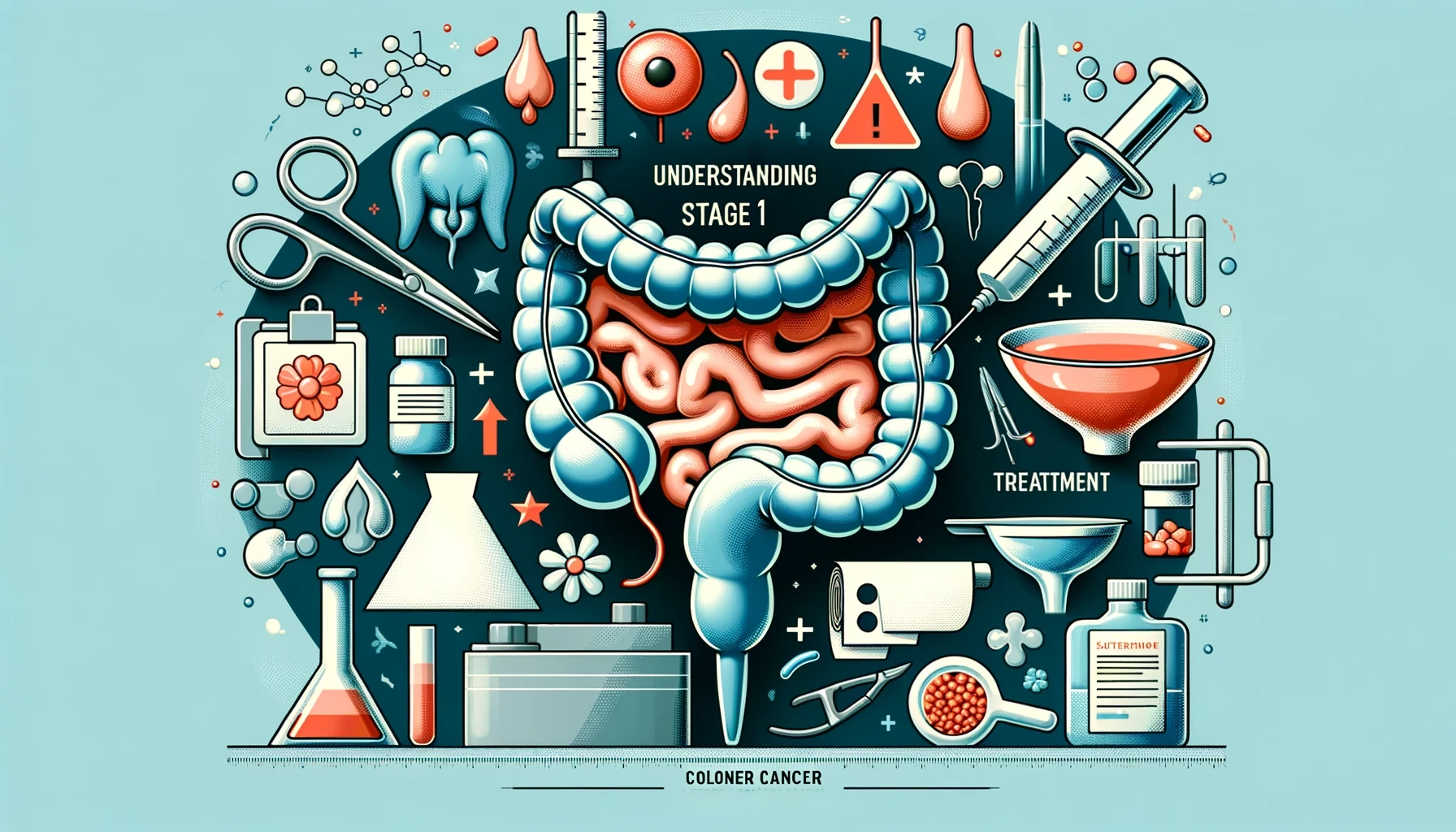
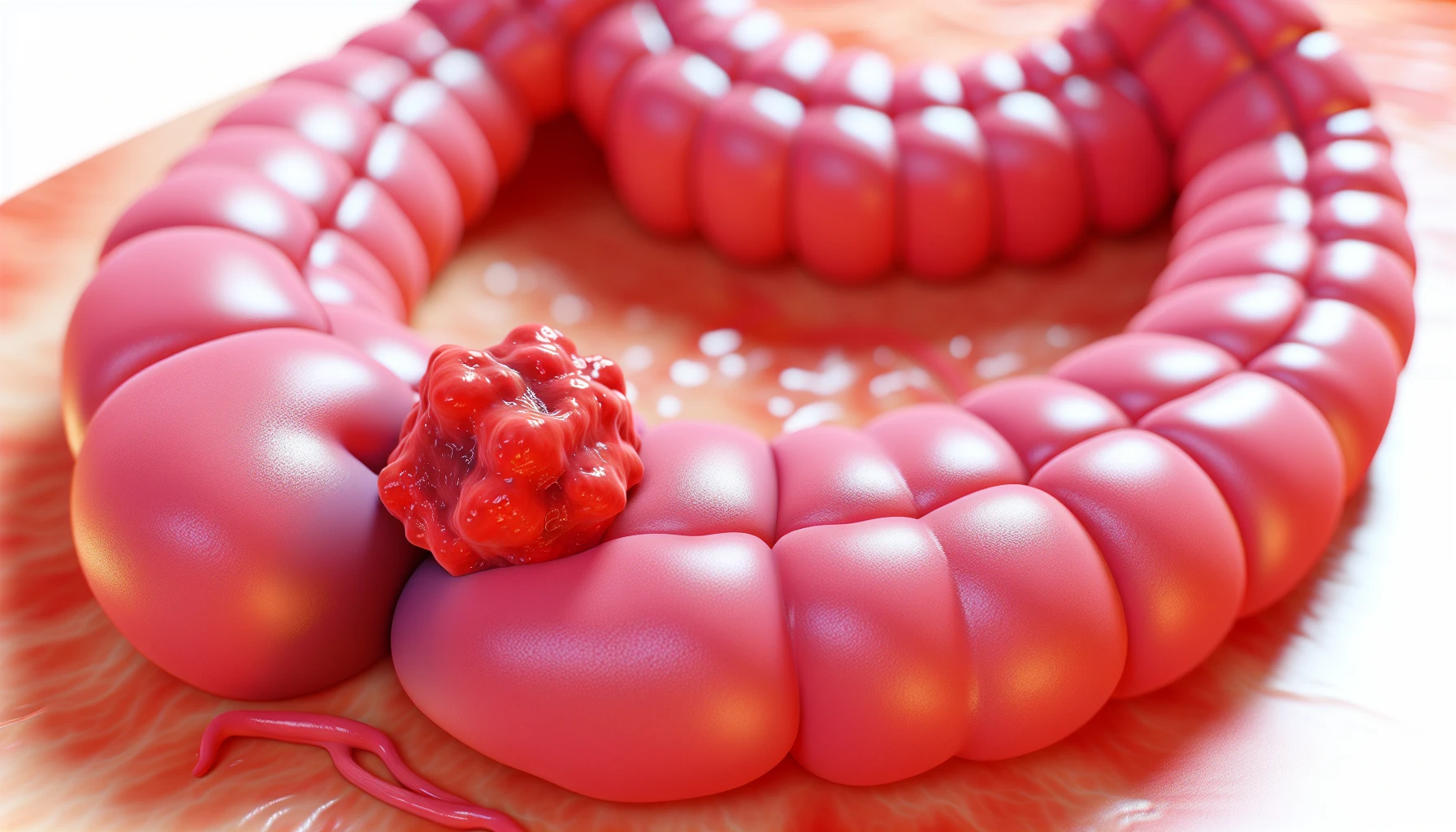
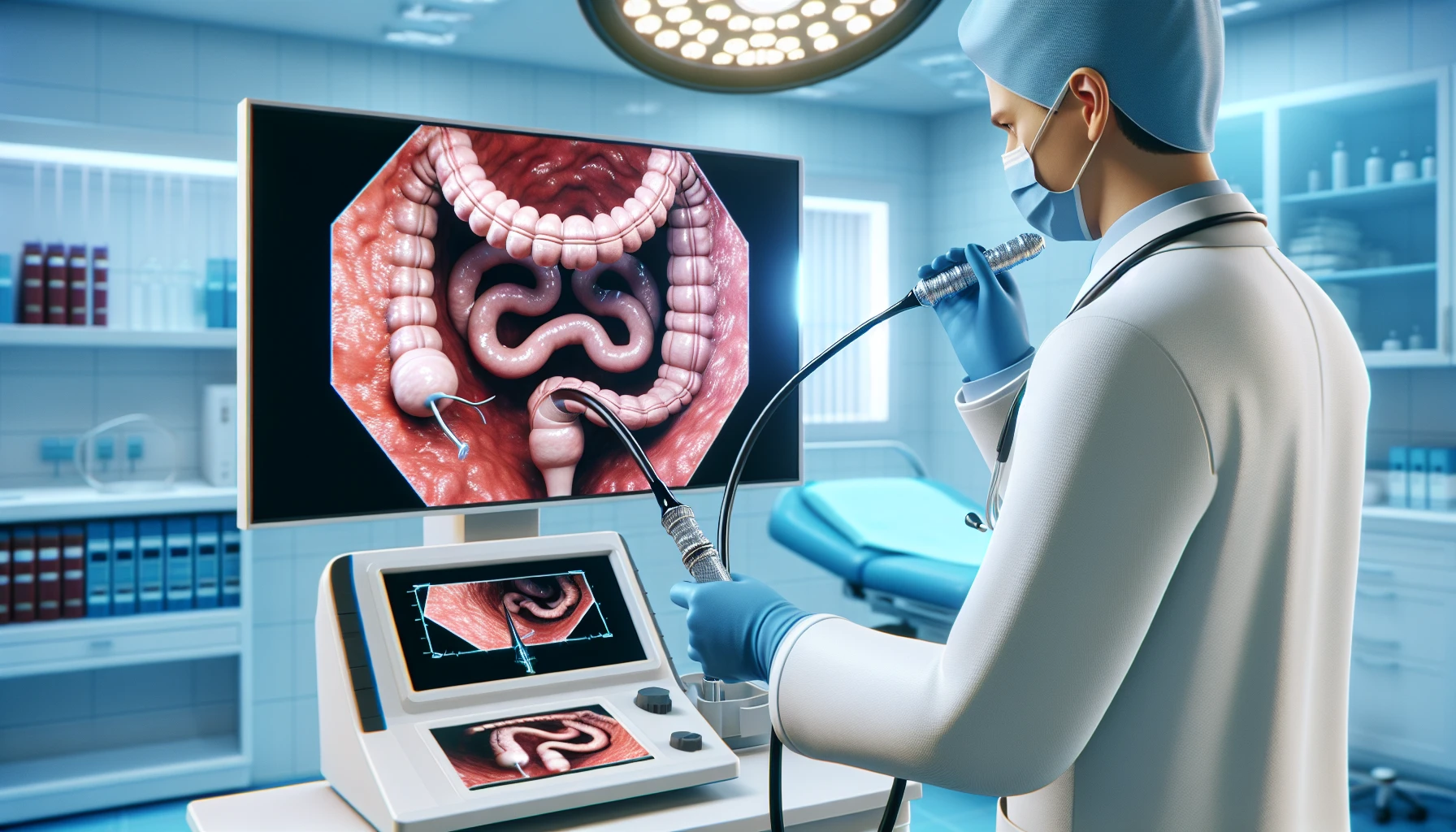

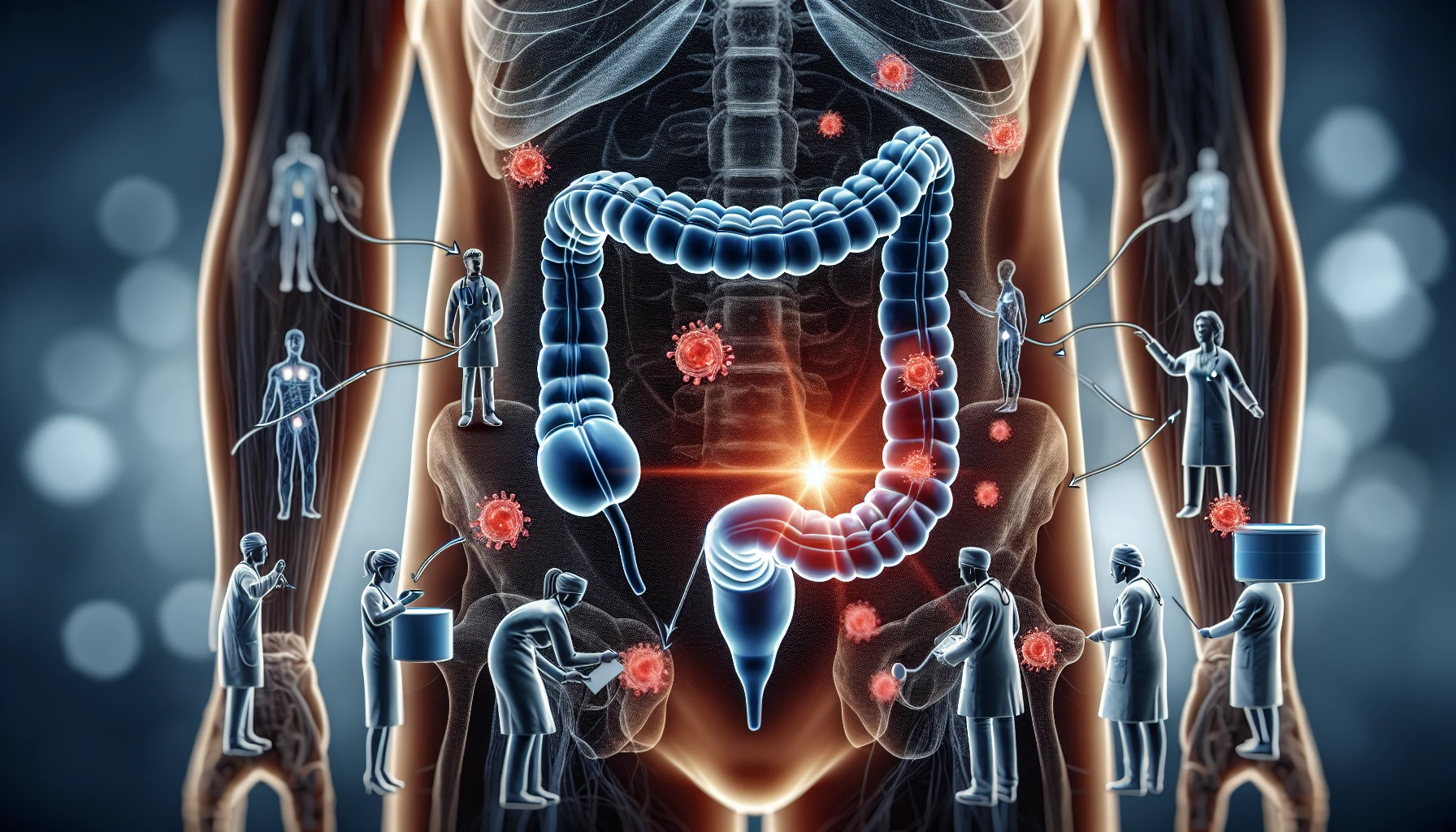
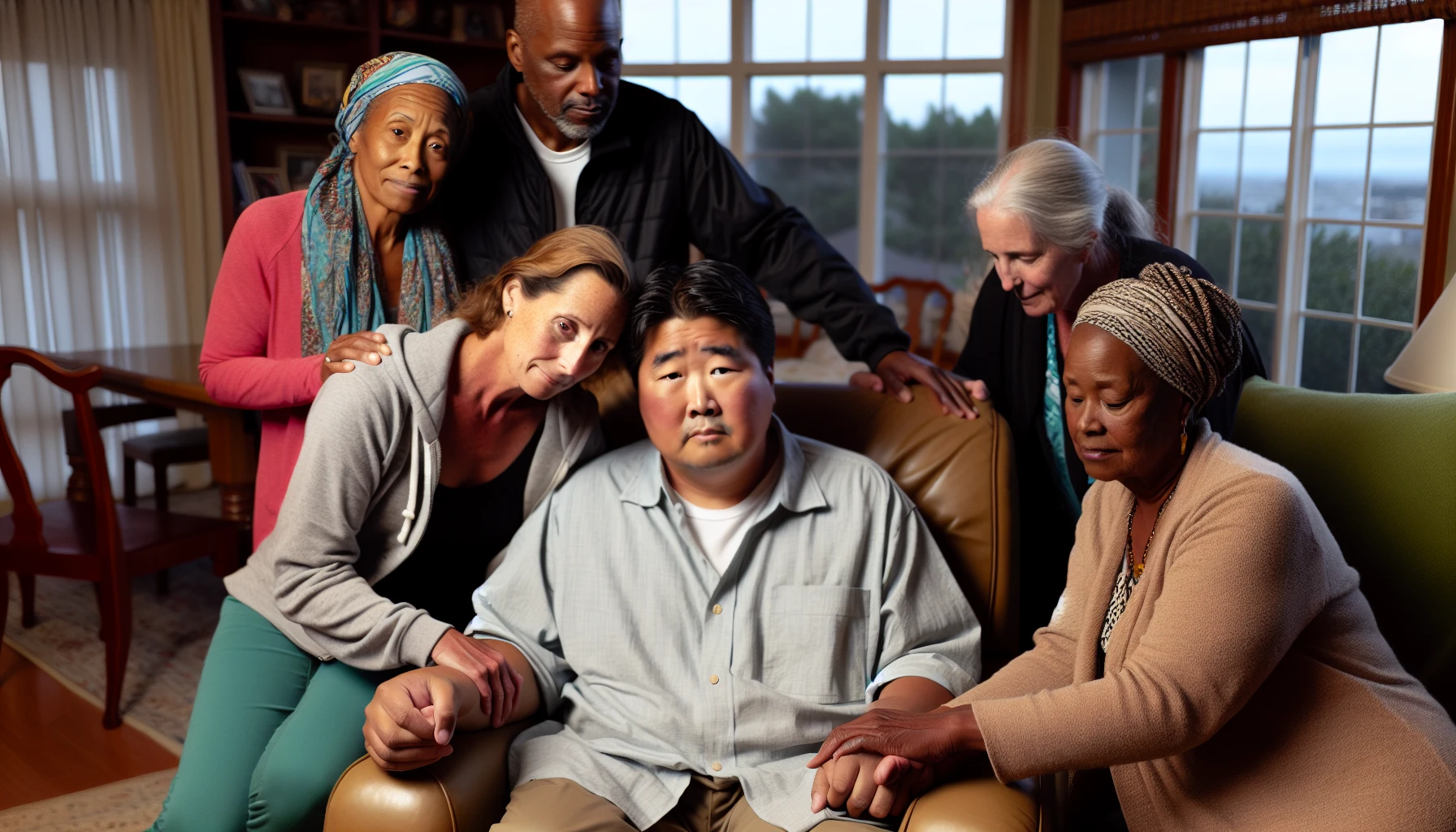

Limited Edition
Top 10
Anti-Cancer Juices & Smoothies
Sign up to get access